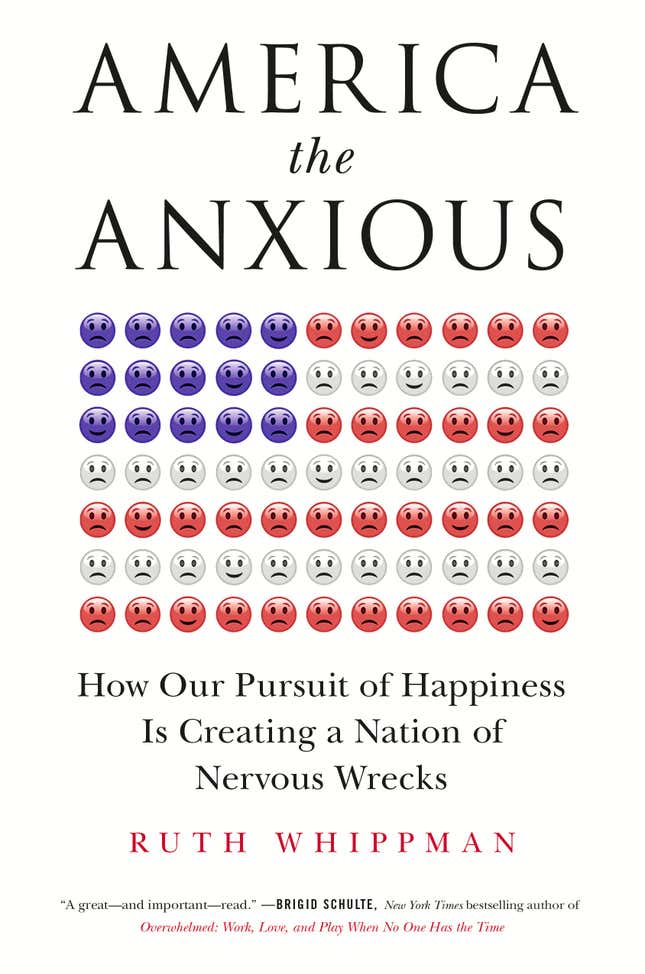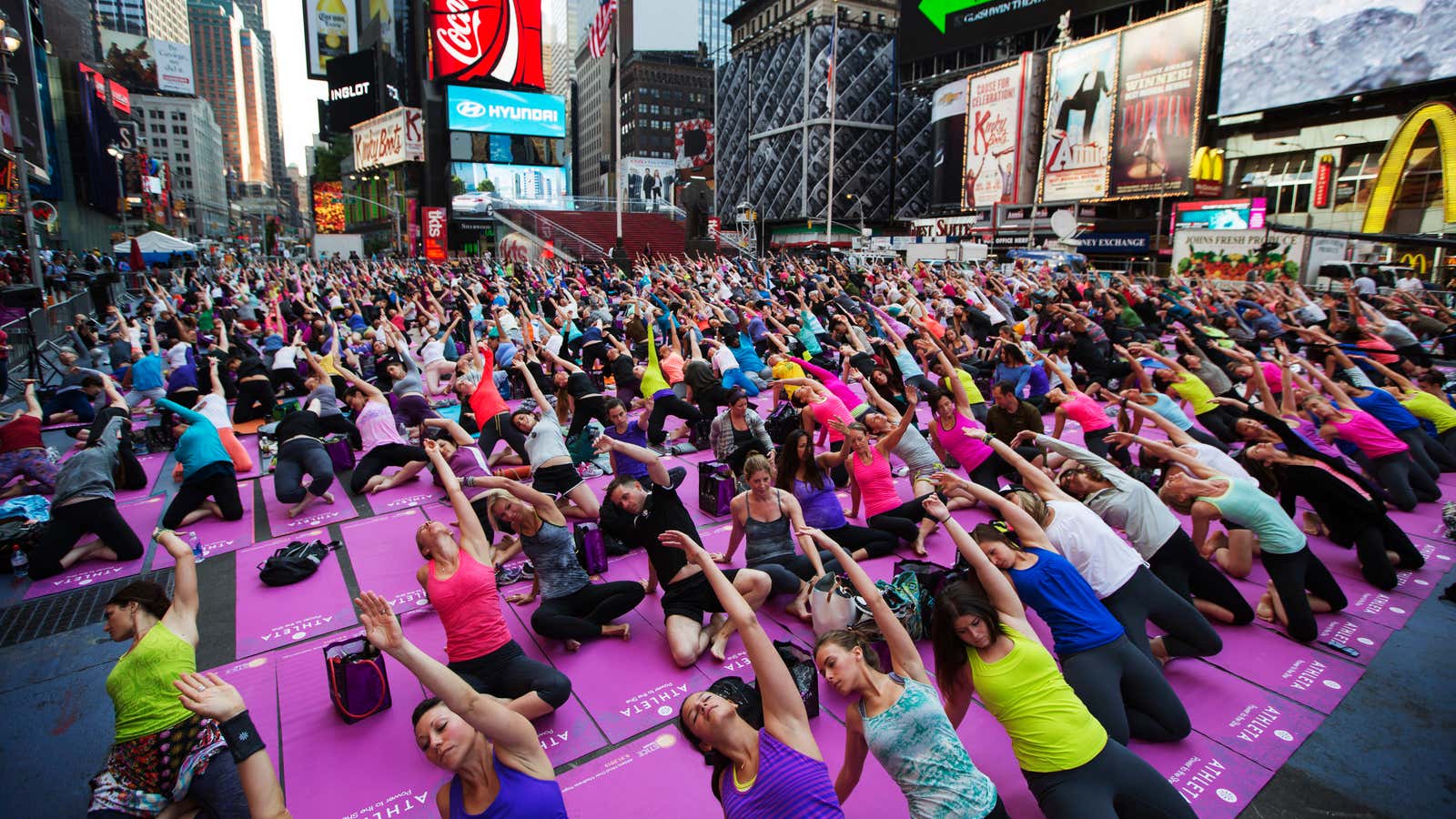As a Brit living in the United States, the sheer backbreaking intensity of the American approach to finding happiness can sometimes feel alien. People in America spend more time, emotional energy, and money in the quest for contentment than any nation on earth. The systematic packaging and selling of happiness is an industry estimated to be worth more than $10 billion, about the same size as Hollywood (the other great purveyor of happily ever-after.)
And in recent years, this industry has found a new respectability. While the words “self-help guru” might once have conjured some kind of clammy fist-pumping huckster roaring out platitudes to a desperate crowd, it’s now more likely to be an Ivy League “positive psychology” professor with a string of TED talks and a government contract.
A decade ago, meditation practiced anywhere outside of Tibet or adolescence had the vague whiff of patchouli and dysfunction about it. Now investment bankers love it. Americans spend billions a year on mindfulness products and yoga, enough money in fact that savvy marketeers have even designated a whole new category they are calling “spiritual spending.” In a culture that loves consumerism, happiness has become the ultimate consumer product.
This is the American dream applied to the soul. The idea is that if you just put in enough emotional elbow grease, slog out enough hours of positive thinking, mindful coloring, gratitude-journal keeping, and self-help book reading, you will ultimately be rewarded with true happiness.
But this Calvinist approach to contentment isn’t working. Despite all of the effort and money they are pumping into the endeavor, Americans consistently rank as some of the least happy people in the developed world. One recent survey even placed the day-to-day happiness of the American people two places behind the citizens of Rwanda. What’s more, according to the World Health Organization, Americans are far and away the most anxious people on the planet, with nearly a third of people in this country likely to suffer from an anxiety disorder in their lifetime. So what is going wrong? Why isn’t all this effort paying off?
At least part of the problem might be the incessant focus on happiness itself.
A series of studies carried out by psychologists at the UC Berkeley showed that paradoxically, the more intensely people value and pursue happiness as a distinct goal, the more likely they are to display symptoms of unhappiness, anxiety, loneliness and even depression.

Of course, this in itself doesn’t prove cause and effect—after all, it stands to reason that people who are already unhappy would place a higher premium on happiness. But even in a lab setting, when researchers primed one group of people to value happiness more highly than a control group, by getting them to read a bogus article extolling the social and health benefits of being happy, they immediately felt more lonely, anxious and unhappy than the controls.
But perhaps a deeper problem is the way in which Americans are going about hunting down contentment. Research shows that in some cultures—especially those where happiness is defined less as an individualistic, self-focused endeavor and more in a more collective, socially oriented way—the more actively people value and pursue happiness, the happier they become. This is pretty much the exact opposite of the American pattern.
This is also almost certainly the heart of the problem. Increasingly, Americans are chasing happiness by looking inward into their own souls, rather than outward toward their friends and communities. While real life socializing has taken a nosedive in recent years, with Americans spending less time with friends and neighbors than they were even ten years ago, there has been an explosion in the uptake of more solitary happiness pursuits. Many recent happiness trends, from self-help books to meditation, are designed to be carried out completely alone or in a group without interaction. The explicit aim is that each person stays locked in their own private emotional experience.
But really this idea that we should each be plodding our own solo path to bliss flies in the face of everything we know about how happiness actually works. If there’s one point on which practically every piece of research into the nature and causes of wellbeing is consistent it is this: our happiness depends on other people. The stronger our relationships with others, the happier we are. Moment to moment, research suggests that if we want to be happy we should be spending less, not more, time alone.
Perhaps we would be better off sitting in the pub with our friends complaining about self-help books rather than actually reading them.




